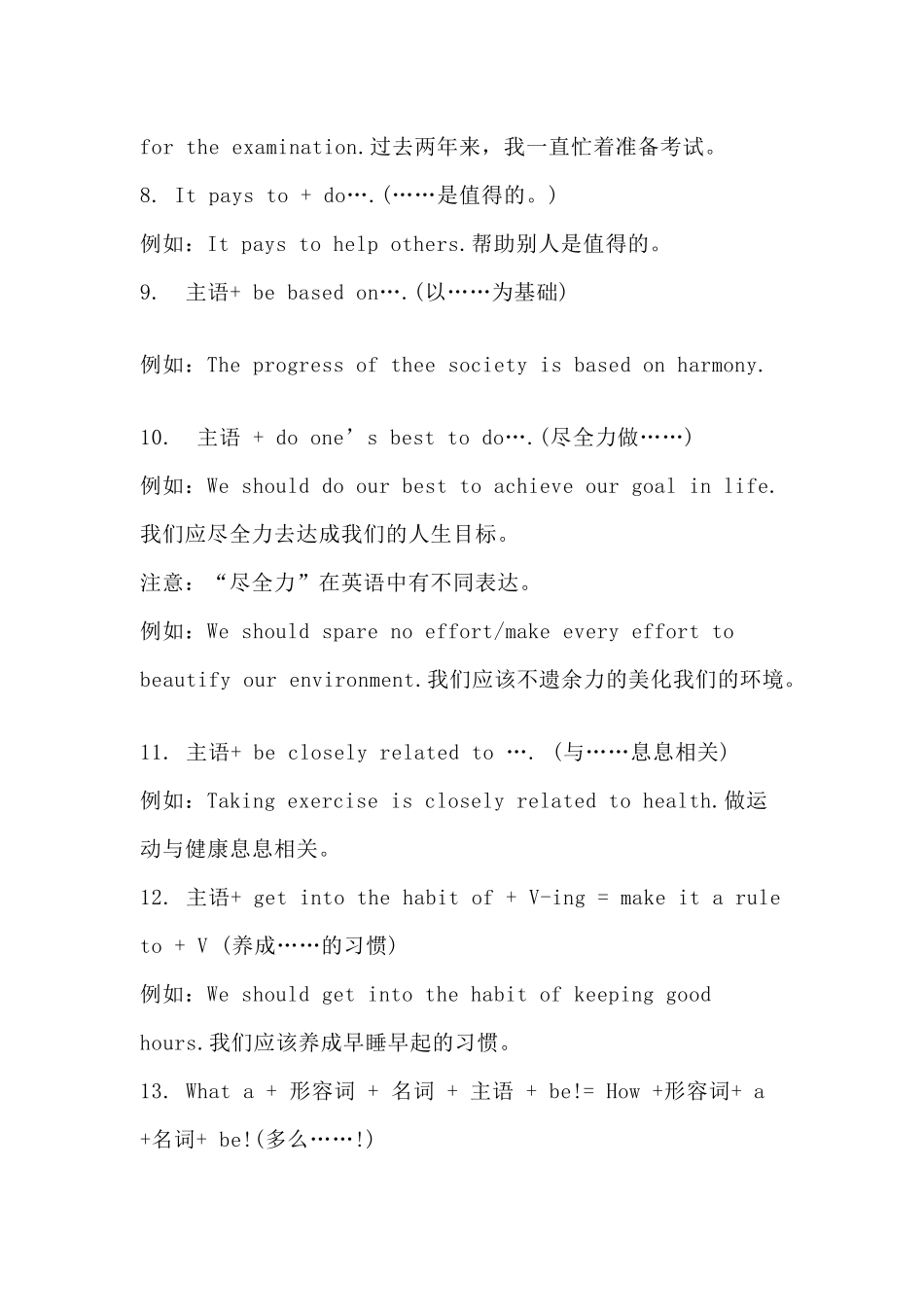1. 主语+ cannot emphasize the importance of … too much.(再怎么强调……的重要性也不为过。)例如:We cannot emphasize the importance of protecting our eyes too much.我们再怎么强调保护眼睛的重要性都不为过。2. There is no need for sb to do sth.\ for sth.(某人没有必要做……)例如:There is no need for you to bring more food.不需你拿来更多的食物了。3. By +doing…,主语+can …. (借着……,……能够……)例如:By taking exercise, we can always stay healthy.借着做运动,我们能够始终保持健康。4. … enable + sb.+ to + do…. (……使……能够……)例如:Listening to music enables us to feel relaxed.听音乐使我们能够感觉轻松。5. On no account can we + do…. (我们绝对不能……)例如:On no account can we ignore the value of knowledge.我们绝对不能忽略知识的价值。6. What will happen to sb.? (某人将会怎样?)例如:What will happen to the orphan?那个孤儿将会怎样?7. For the past + 时间,主语 + 现在完成式/现在完成进行时…. (过去……时间来,……一直……)例如:For the past two years,I have been busy preparing for the examination.过去两年来,我一直忙着准备考试。8. It pays to + do….(……是值得的。)例如:It pays to help others.帮助别人是值得的。9. 主语+ be based on….(以……为基础)例如:The progress of thee society is based on harmony.10. 主语 + do one’s best to do….(尽全力做……)例如:We should do our best to achieve our goal in life.我们应尽全力去达成我们的人生目标。注意:“尽全力”在英语中有不同表达。例如:We should spare no effort/make every effort to beautify our environment.我们应该不遗余力的美化我们的环境。11. 主语+ be closely related to …. (与……息息相关)例如:Taking exercise is closely related to health.做运动与健康息息相关。12. 主语+ get into the habit of + V-ing = make it a rule to + V (养成……的习惯)例如:We should get into the habit of keeping good hours.我们应该养成早睡早起的习惯。13...

